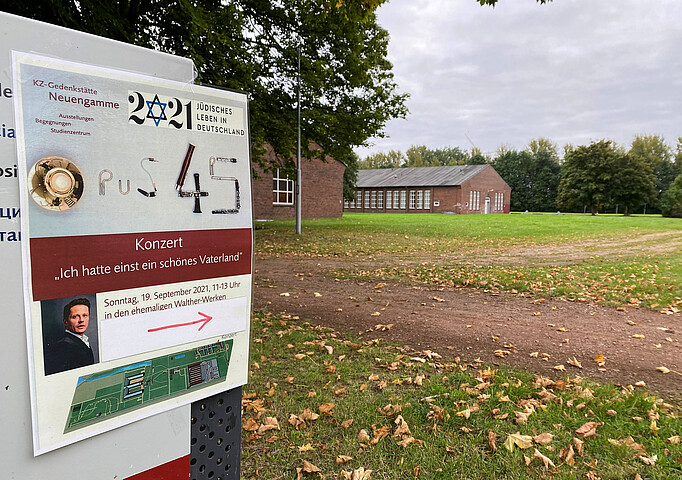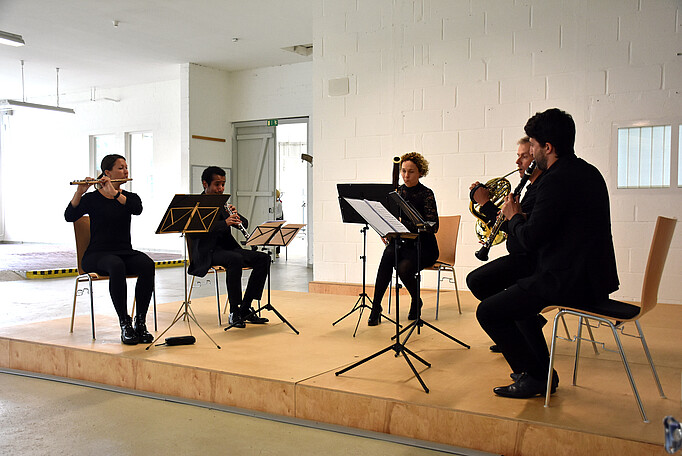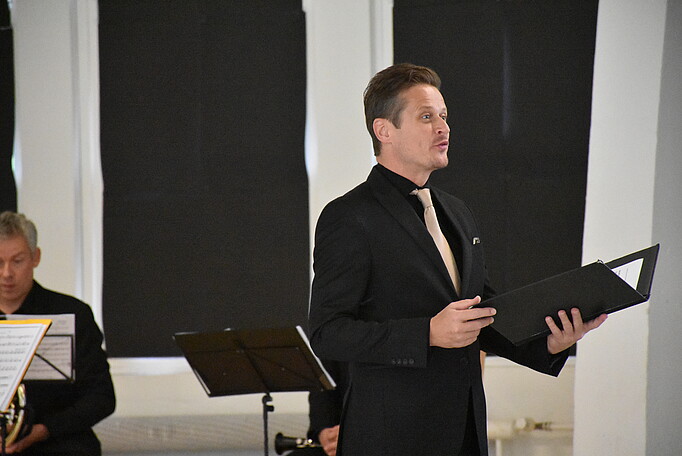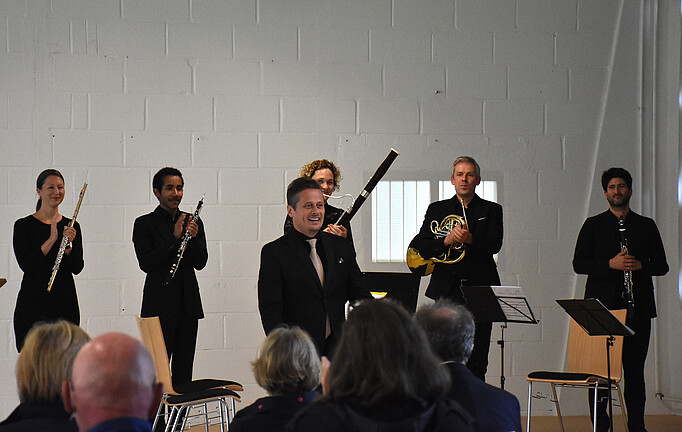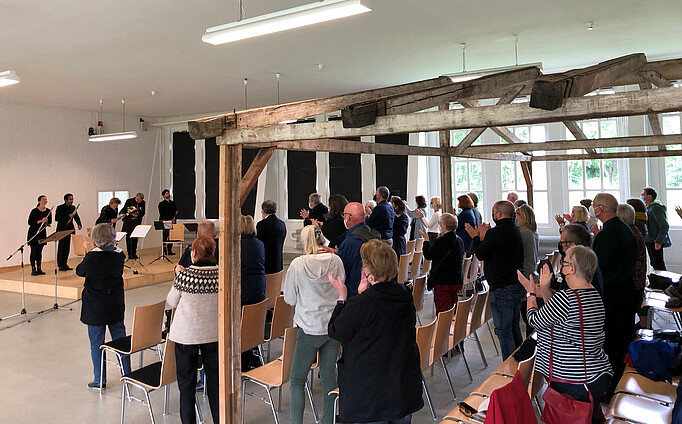09/20/2021 Event
Ich hatte einst ein schönes Vaterland – Report on a literary chamber music matinée
The concert on September, 19th, commemorated 1700 years of Jewish life in Germany and was a collaboration between the actor Roman Knižka, known for his appearances in various TV dramas, films and audiobook narrations, and the wind quintet OPUS 45 whose musicians play in a range of renowned ensembles throughout Germany. Under the title “Ich hatte einst ein schönes Vaterland” (I once had a beautiful fatherland), these artists came together to offer this ‘literary chamber music matinée’ in the former Walther Werke of the Neuengamme concentration camp memorial.
The event opened with a solo clarinet before the entrance of Knižka and the first reading. This set the scene for the rest of the performance, with the transitions between reading and music being seamless throughout. Furthermore, the music and the readings were selected carefully, with audience hearing about the life of noted Jewish philosopher Moses Mendelssohn early on in the concert before being treated to music by his grandson, Felix Mendelssohn Bartholdy, later on in the first half.
The readings followed a roughly chronological order, and the first half was chiefly dedicated to the 18th and 19th centuries with the last reading before the break being taken from Richard Wagner. Wagner’s associations with National Socialism are well-known, showing that art and culture were and are not immune from the horrors of anti-semitism. This was followed by five dances by Denès Agay, who left Germany for the United States following the rise of Nazism.
The second half left a heavy emotional toll, with a particularly notable moment being the reading of a soldier’s last letter to his parents. It was also in the second half that themes around the Second World War were explored. Else Dormitzer’s “Transport” and Anita Lasker-Wallfisch’s remembrances as the cellist of Auschwitz were incredibly moving and were followed by music from Hungarian-Austrian composer György Ligeti whose parents were sent to Auschwitz. One could not help but notice the concert’s location when these passages were read out, only adding to the impact on all who were present.
It was also in the second half that we saw an even closer interaction between the OPUS 45 and Knižka. Several pieces featured a voiceover, meaning the reading and music were allowed to complement one another in a way that was not seen in the first half. This was a further example of the extent to which the concert was able to integrate the music and the readings. At one point Knižka was even seen to ‘cut off’ the musicians to great effect.
Mascha Kaléko’s “Emigrantenmonolog”, recalled the title of the concert (Ich hatte einst ein schönes Vaterland) and Heinrich Heine’s poem of the same name which was read in the first half. This internal thread helped tie the concert together and added a real sense of coherence to the proceedings in a way that was subtle and not overdone.
The last reading came from contemporary lyric-poet Max Czollek’s 2018 book “Desintegriert Euch!” which explored modern Jewish identity in Germany in a thought-provoking way, before the final piece of music by French composer Jaques Ibert, whose music was banned by the Vichy regime during the war.
The concert ended to lengthy applause and a long standing ovation from the audience. In sum, this was a challenging concert which was able to intimately weave together the spoken word and music in order to present a moving and sensitive tribute to 1700 years of Jewish life in Germany which was not afraid to address difficult and troubling issues. Knižka and the musicians complemented each other well and the programme, lasting around two hours with an interval, kept the audience engaged from start to finish.
Report by Daniel Cartwright

